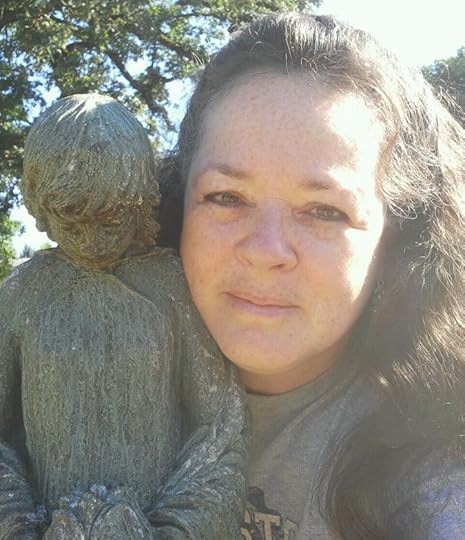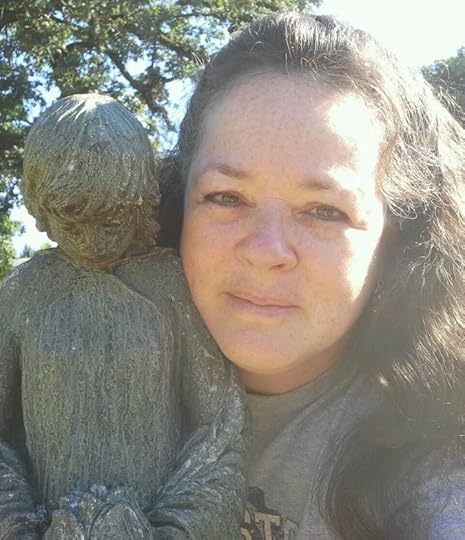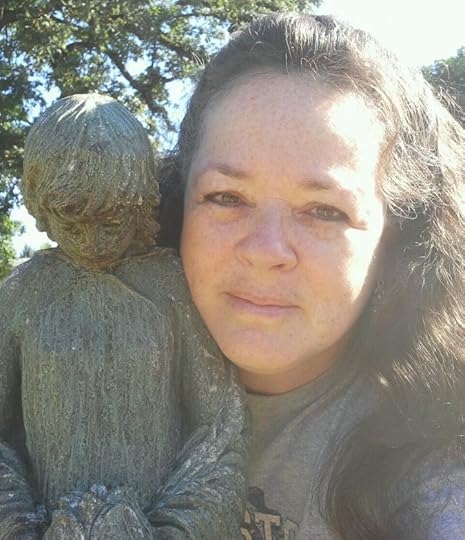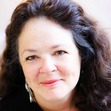Janalyn Voigt's Blog, page 30
January 6, 2012
7 Traits of best-selling authors: #6 Don't Let This Monster Eat Your Writing Career
 The night before, she'd delivered the keynote speech for the NCWA Writers Renewal, and now conference attendees crowded the room where the best-selling author would teach suspense techniques. Rather than isolating herself behind the podium, Brandilyn Collins moved down the aisle touching hands. Only after she had welcomed each person by name did she take her place up front.
The night before, she'd delivered the keynote speech for the NCWA Writers Renewal, and now conference attendees crowded the room where the best-selling author would teach suspense techniques. Rather than isolating herself behind the podium, Brandilyn Collins moved down the aisle touching hands. Only after she had welcomed each person by name did she take her place up front.
In extending herself to others, Brandilyn exhibited a quality common to many best-selling authors. Humility. When you think about it, only a humble soul will become a student in order to master the craft of writing. It takes humility to meet deadlines, accept edits, and ignore negative reviews. Since publishing thrives on relationships and pride is so isolating, without humility a writer won't last long.
If you struggle to obtain humility, don't despair. Just identifying the problem helps. Here are my tips on conquering the pride monster:
Acknowledge that you're self-focused and resolve to change.
Confess your prideful attitude and ask those you have wounded for forgiveness.
Remember that there will always be those with more experience than you and those with less.
When someone else's success makes you jealous, promote that person.
When you're tempted to look down on someone else, remember your own humble beginnings.
Deal with others at eye-level.
Don't buy your own publicity.
Build your self-esteem in positive ways. People who postulate lack confidence.
Talent is God given. Be humble. Fame is man-given. Be grateful. Conceit is self-given. Be careful. ~ John Wooden (American basketball player and coach)
Related Posts:
7 Traits of Best-selling Authors: #5 How to Get Editors, Agents and Readers to Believe
7 Traits of Best-selling Authors: #4 Where the Rubber Meets the Road
7 Traits of Best-selling Authors: #3 The Elusive Ingredient in Writing Success
7 Traits of Best-selling Authors: #2 Where Most Writers Stumble
7 Traits of Best-selling Authors: #1 Author, Know Yourself
© 2010 Janalyn Voigt
Click to Subscribe to LiveWriteBreathe by Email
|
December 30, 2011
7 Traits of Best-selling Authors: #5 How to Get Agents, Editors and Readers to Believe

You're on an airplane coasting down a runway. The pilot's voice crackles through the speakers: "Well folks, I've trained and even have experience, so I'm hopeful I can get this plane into the air." Chances are, you're ready to dive through the emergency exit door. Why? With your safety on the line, you don't want the pilot to hope anything. You want him to know he can do his job. Blindfolded, if need be.
Editors and agents are no different. They must believe you can write well, and that you'll reach readers from an established platform. Readers also need to see that you believe in your writing. Show them any signs of uncertainty, and they'll give you as much confidence as you give yourself.
The pilot in my example might have aced every exam and flown without incident for 20 years. It doesn't matter. If he or she hesitates, you're trust is lost. But you might never question the experience of a trainee who exudes confidence.
Best-selling authors have to be brave. It takes courage to win a book contract in the first place, make it through edits, launch the book, weather a barrage of reviews, and of course monitor rankings and sales. Courage is not fear's absence but rather carrying on despite it. As an example, best-selling author Jody Hedlund blogged about her "terror" at release of her debut novel, but then went on to write her second book.
Virtually every best-selling author of which I'm aware exhibits self-confidence. If you lack this quality, here are some tips:
Study the craft of writing until you could teach it yourself.
Engage in a critique group both to build your confidence and to help you take constructive criticism.
Either study self-editing or hire a professional editor you trust to go over your manuscript, and then learn from the advice you receive.
Enter writing competitions like ACFW's Genesis contest to sharpen your skills and to receive notes for improvement.
Join Toastmasters or another group that helps you gain confidence in front of others.
Develop online and in-person friendships with other writers.
Edit any negative self-talk.
Believe in yourself and others will believe in you too.
Please leave more ideas to help others in the comments.
Related Posts
7 Traits of Best-selling Authors: #4 Where the Rubber Meets the Road
7 Traits of Best-selling Authors: #3 The Elusive Ingredient in Writing Success
7 Traits of Successful Writers: #2 Where Most Writers Stumble
7 Traits of Best-selling Authors: #1 Author Know Yourself
© 2010 Janalyn Voigt
Click to Subscribe to LiveWriteBreathe by Email
|
7 Traits of Bestselling Authors: #5 How to Get Agents, Editors and Readers to Believe
 You're on an airplane coasting down a runway. The pilot's voice crackles through the speakers: "Well folks, I've trained and even have experience, so I'm hopeful I can get this plane into the air." Chances are, such a statement would tempt you to exit through the emergency door. Why? With your safety on the line, you don't want the pilot to hope he can perform his job; you want him to know he can. Blindfolded, if need be.
You're on an airplane coasting down a runway. The pilot's voice crackles through the speakers: "Well folks, I've trained and even have experience, so I'm hopeful I can get this plane into the air." Chances are, such a statement would tempt you to exit through the emergency door. Why? With your safety on the line, you don't want the pilot to hope he can perform his job; you want him to know he can. Blindfolded, if need be.
Editors and agents are no different. They must believe you can write well, and that you'll reach readers from an established platform. Readers also need to see that you believe in your writing. Show them any signs of uncertainty, and they'll give you as much confidence as you give yourself.
The pilot in my example might have aced every exam and flown without incident for 20 years. It doesn't matter. If he or she hesitates, you're trust is lost. But you might never question the experience of a trainee who exudes confidence.
Best-selling authors have to be brave. It takes courage to win a book contract in the first place, make it through edits, launch the book, weather a barrage of reviews, and of course monitor rankings and sales. Courage is not fear's absence but rather carrying on despite it. As an example, best-selling author Jody Hedlund blogged about her "terror" at release of her debut novel, but then went on to write her second book.
Virtually every best-selling author of which I'm aware exhibits self-confidence. If you lack this quality, here are some tips:
Study the craft of writing until you could teach it yourself.
Engage in a critique group both to build your confidence and to help you take constructive criticism.
Either study self-editing or hire a professional editor you trust to go over your manuscript, and then learn from the advice you receive.
Enter writing competitions like ACFW's Genesis contest to sharpen your skills and to receive notes for improvement.
Join Toastmasters or another group that helps you gain confidence in front of others.
Develop online and in-person friendships with other writers.
Edit any negative self-talk.
Believe in yourself and others will believe in you too.
Please leave more ideas to help others in the comments.
Related Posts
7 Traits of Best-selling Authors: #4 Where the Rubber Meets the Road
7 Traits of Best-selling Authors: #3 The Elusive Ingredient in Writing Success
7 Traits of Successful Writers: #2 Where Most Writers Stumble
7 Traits of Best-selling Authors: #1 Author Know Yourself
© 2010 Janalyn Voigt
Click to Subscribe to LiveWriteBreathe by Email
|
December 23, 2011
7 Traits of Best-selling Authors: #4 Where the Rubber Meets the Road
I once worked in a Seattle skyscraper, chained to my virtual desk for long overtime hours. As I tackled impossible daily quotas, I had to work fast and accurately. With the computer monitoring my productivity, if I wanted my job I couldn't slack.
While my employment as an assistant underwriter is behind me, those years taught me the same techniques best-selling authors use. Passion, commitment and focus are only part of what it takes to win as a writer. It also takes dedication. That's a nice concept, but how do you apply it to every day?
1. Check your hat at the door. Whatever puzzles life brings your way should remain outside the work arena. If you bring them to your desk with you, they'll only slow you down. When you sit down to work, forget all that. This time, right now, is set apart for your writing and nothing else. Or as Mark Twain put it: "Drag your thoughts away from your troubles… by the ears, by the heels, or any other way you can manage it."
2. Set goals. Whether you strive for a particular word count or to complete specific scenes, aim a little higher than you think is possible. You may surprise yourself. Even if you don't reach all your goals, by focusing on them you'll probably accomplish more than you would have otherwise. "Only those who will risk going too far can possibly find out how far one can go." ~T.S. Eliot
3. Schedule your time. Writers love to quote Mary Heaton Vorse: "The art of writing is the art of applying the seat of the pants to the seat of the chair." Some abbreviate this method to BIC (butt in chair). It's harder than it sounds. It's entirely possible to work hard all day and get nothing that you needed to do done. By keeping a schedule, you take control of your time and can switch rapidly from one task to another without taking time to consider. If even a schedule you set makes you rebel, work down a prioritized To Do List instead.
4. Monitor your computer use. While computers are useful tools, they also distract us. With no one looking over your shoulder, it's easy to look at "just one" video or peek at Facebook. Now I'm not against rewarding yourself for completing tasks, but if your reward is an hour on a favorite video game, there's a problem. In Booklife: Strategies and Survival Tips for the 21st Century Writer , Best-selling author Jeff Vandermeer relates that his wife hides his modem in a different place each day. After he calls and tells her he's completed his writing goals for the day, she tells him its location. If you don't have such a cooperative spouse, I suggest installing Rescue Time, a program that allows you to track your computer use. If you need the help, it can even be set to regulate your Internet use.
, Best-selling author Jeff Vandermeer relates that his wife hides his modem in a different place each day. After he calls and tells her he's completed his writing goals for the day, she tells him its location. If you don't have such a cooperative spouse, I suggest installing Rescue Time, a program that allows you to track your computer use. If you need the help, it can even be set to regulate your Internet use.
I can't guarantee that you'll become a best-selling author, but following these techniques should increase your chances.
*Janalyn Voigt is an Amazon Associate and benefits when products are purchased on Amazon through links she provides.
© 2010 Janalyn Voigt
Click to Subscribe to LiveWriteBreathe by Email
|
December 15, 2011
7 Traits of Best-selling Authors: #3 The Elusive Ingredient in Writing Success
It's a well-known fact that most people who attempt to write a book never finish. Most abandon the project when their initial interest fades.
While it takes passion and commitment to persevere to the end of a first draft, making it through multiple versions of the same story calls for something more. The following poem defines that elusive ingredient:
Cracks split the pavement
And nurture weeds,
But in the garden flowers bloom.
I choose my world.
~ by Janalyn Voigt
The title of my poem is Focus. If you focus on an obstacle, it will obstruct your vision. You won't be able to see beyond it to a solution. Writers often complain that life won't give them time to write. When you think about it, every writer could fall back on this claim. Those who don't, give themselves every chance of success. It's that simple.
I don't mean to be entirely unsympathetic. Due to factors beyond their control, some people really don't have time to write. Sometimes family duties such as single parenting, caring for a terminally-ill loved one, or working overtime can intrude. But even in the face of difficult circumstances, best-sellingnwriters retain a focus on their goals. Renowned author, Stephen Bly, comes to mind. While confined to a hospital bed during the last days of his life, he penned part of a novel.
If you always see that life won't let you write, that will be your reality. If you focus, instead, on writing your book, the obstacles will shrink.
Which world will you choose?
© 2010 Janalyn Voigt
Click to Subscribe to LiveWriteBreathe by Email
|
December 9, 2011
7 Traits of Best-selling Authors: #2 Where Most Writers Stumble
We love our manuscripts. We hate them. The passionate first-draft period of writing a book evokes emotions akin to an Italianate affair. Such zeal can be heady. But when the relationship cools, what then?
Some of the sagest advice newly married couples hear is to never allow the word "divorce" to crop up between them. By refusing to even mentally visit the idea of dissolving the relationship, a couple safeguards its union.
What does this have to do with writing? Only that the majority of writers stumble when it comes to commitment. Most couples don't go into a marriage expecting it to fail. Neither does a writer start a novel with the idea of discarding it. And yet, the day dawns when the once-delightful manuscript suddenly sprouts blemishes and plot holes. Rather than embrace it, they turn away, often to chase after an attractive young thing. And yet, had they remained faithful, they might have realized their dreams.
The ability to commit sets apart prolific novelists like Tricia Goyer, Francine Rivers and Brandilyn Collins. These authors all maintain high-level careers that require sacrifice. Their publishers don't have to wonder if they'll get cold feet and back down when a novel isn't going as planned. Rather than turn away, they push through any difficulties.
Even if you don't have a publisher eagerly awaiting your next manuscript or a deadline to tap, act like you do. You'll be glad you did.
Related Posts: 7 Traits of Successful Writers: #1 Author, Know Yourself
© 2010 Janalyn Voigt
Click to Subscribe to LiveWriteBreathe by Email
|
December 2, 2011
7 Traits of Best-selling Authors: #1 Author, Know Yourself
In these days of abundant authorship, a writer needs to stand out from the crowd. But how? The pundits tell us it takes hard work, and that's true. But if effort alone could bring writing success, you probably wouldn't be reading this blog post. At a guess, you work hard but success still eludes you. Even if you need to apply yourself more, read on.
It's important to work hard, but for writing success you also have to work smarter. Each of us has a finite amount of time, energy and money. It's possible to spend yourself for little gain. Over the next weeks we'll examine 7 traits of bestselling authors that, if adopted, might just make the difference for your writing career.
Cindy Woodsmall, James Rubart, and Lena Nelson Dooley don't seem to have a lot in common at first glance. For one thing, they write in completely different genres. Cindy's Amish fiction is a far cry from Jim's speculative fiction and Lena's historical romance. And yet each of these authors writes from a personal passion to meet their readers' felt needs. Cindy brings the comfort of a gentler world to fans. Jim empowers others to overcome fear and live in freedom. Lena brings the past alive through inspirational love stories.
Cindy, Jim and Lena don't tell random stories to please themselves. These authors reach out to others and share a passion that taps a larger need than a single book can satisfy. Readers know this on a gut level. And because their need is ongoing, they eagerly await the author's next release. Readers living in a harsh world will still want Cindy's comfort, Jim's encouragement and Lena's inspirations about love.
So, to bring this home: If you're confused about your readership, it's a sure sign you need to identify your driving passion(s). Ask yourself what passion you can tap to bring something of value to readers.
Author, know yourself.
© 2010 Janalyn Voigt
Click to Subscribe to LiveWriteBreathe by Email
|
7 Traits of Bestselling Authors: #1 Author, Know Yourself
In these days of abundant authorship, a writer needs to stand out from the crowd. But how? The pundits tell us it takes hard work, and that's true. But if effort alone could bring writing success, you probably wouldn't be reading this blog post. At a guess, you work hard but success still eludes you. Even if you need to apply yourself more, read on.
It's important to work hard, but for writing success you also have to work smarter. Each of us has a finite amount of time, energy and money. It's possible to spend yourself for little gain. Over the next weeks we'll examine 7 traits of bestselling authors that, if adopted, might just make the difference for your writing career.
Cindy Woodsmall, James Rubart, and Lena Nelson Dooley don't seem to have a lot in common at first glance. For one thing, they write in completely different genres. Cindy's Amish fiction is a far cry from Jim's speculative fiction and Lena's historical romance. And yet each of these authors writes from a personal passion to meet their readers' felt needs. Cindy brings the comfort of a gentler world to fans. Jim empowers others to overcome fear and live in freedom. Lena brings the past alive through inspirational love stories.
Cindy, Jim and Lena don't tell random stories to please themselves. These authors reach out to others and share a passion that taps a larger need than a single book can satisfy. Readers know this on a gut level. And because their need is ongoing, they eagerly await the author's next release. Readers living in a harsh world will still want Cindy's comfort, Jim's encouragement and Lena's inspirations about love.
So, to bring this home: If you're confused about your readership, it's a sure sign you need to identify your driving passion(s). Ask yourself what passion you can tap to bring something of value to readers.
Author, know yourself.
© 2010 Janalyn Voigt
Click to Subscribe to LiveWriteBreathe by Email
|
November 25, 2011
7 Traits of Successful Writers: #1 Passion
Passion
Commitment
Fire
Focus
Decisiveness
Humility
Wisdom
It's a well-known fact that most people who attempt to write a book never finish. Most abandon the project when their initial interest fades, and that's probably best.
While it takes commitment, passion and fire to persevere to the end of a first draft, making it through multiple versions of the same story calls for something more. This poem defines that elusive ingredient:
Cracks split the pavement
And nurture weeds,
But in the garden flowers bloom.
I choose my world.
~ by Janalyn Voigt
The title of my poem is Focus. If you focus on an obstacle, it will grow to obstruct your vision. You won't be able to see beyond it to a solution. Writers often complain that life won't give them time to write. Truth to tell, every writer can make that same claim. But successful writers don't allow life to intrude unduly. It's that simple.
Now, I don't mean to be unsympathetic. Due to circumstances beyond their control, some people really don't have time to write. Sometimes family duties such as single parenting, caring for a terminally ill loved one or working overtime can intrude. Even then, zeal can make a way. I think of renowned author Stephen Bly. While in a hospital bed during the last days of his life, he penned part of a novel.
If you always see that life won't let you write, that will be your reality. If you focus, instead, on writing your book, the obstacles will shrink. Which world will you choose?
© 2010 Janalyn Voigt
Click to Subscribe to LiveWriteBreathe by Email
|
November 18, 2011
How to Plan: My Daily Schedule
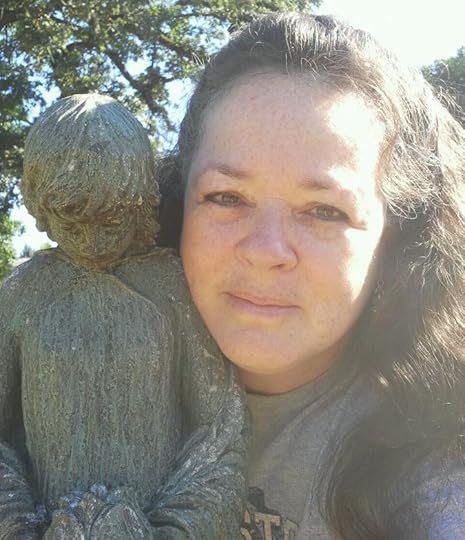 I had no idea that keeping to a schedule made me unusual until I asked some of my Facebook friends if they used one. Almost all of them said they did not, which was amazing news to me. How do they get things done?
I had no idea that keeping to a schedule made me unusual until I asked some of my Facebook friends if they used one. Almost all of them said they did not, which was amazing news to me. How do they get things done?
Now I realize that some writers plot and some write by the seat of the pants. Similarly, some writers schedule their time and some wing it every day. Can you guess at any parallels here? I'm willing to bet that I have a bunch of "pantser" Facebook friends. 
Enough people have asked me how I schedule my time that I've decided to post all the riveting details here. I hope that, whether you plot and schedule or not, you'll find something useful in my mundane life.
Disclaimer: This schedule is subject to change. At the moment, my family needs my stability. Since I'm more of a tortoise than a hare when it comes to writing, that works for me. If you are the type of person who writes in sprints, however, this may not be for you.
Notes: This schedule represents my usual Monday-through-Friday existence. I take weekends off from writing and leave Sunday unscheduled. The time designations are guidelines I use, not straightjackets. Sometimes life needs my attention, a writing project gets overbearing or I oversleep. Flex is important, as long as you don't take it too far.
6:00 AM: My first alarm goes off. I grumble, turn it off and go back to sleep.
6:30 AM: My second alarm goes off. I turn it off and, using my smartphone, wake up while I check my emails, Facebook profile and Twitter. If I'm feeling particularly sleepy, I'll also read a chapter or a print book or on my phone.
6:45 AM (or so): I stagger upstairs and try to locate the coffee maker somewhere in the morning fog surrounding me. I find something to eat and sit down to plan my day.
7:15 AM: Time to read my Bible and spend time in prayer.
7:30 AM: I perform my morning routine, which includes the usual round of bed making, grooming, laundry, cat feeding, dish washing and trash removal.
8:00 AM: One of my first tasks at the computer is to post an update from my Facebook Author page. I also comment on other pages as my author page. Afterwards, I sort my emails into either specific category folders (like education) or the following folders: Reply, Pending, Action, Reference, Archive, or Trash.
8:30 AM: I work on a writing or editing project.
10:30 AM: Time for a tea and snack break.
10:45 AM: When I return to my desk, I comment as my Facebook profile page, and then reply to all the emails in my "Reply" folder. By the time I'm done, my folder is empty.
11:00 AM: At this time I write and promote blog or newsletter posts.
12:00 PM: I take a lunch break, clean one room, switch laundry, clear my personal desk, and make personal phone calls.
1:00 PM: I visit http://hootsuite.com, where I manage my social networking accounts. I schedule posts to my Facebook profile, Author page and Twitter during this time. Afterwards I work a little on promotion or an ongoing research project, and then tackle all the emails in my "Pending" folder. I dispatch every task that I can but don't completely empty this folder, because these are emails I'm saving while I wait for replies from others or reminders I send myself from Google Calendar for things I need to do.
2:00 PM: I work on a writing or editing project.
4:00 PM: I monitor my Twitter account, reply to those who mention me, retweet others, read interesting blog posts and comment. Then it's time to tackle the "Action" folder in my email account. These are the emails I want to read or need to follow up on. I don't always empty this each day, but I try. If something is important and I won't get to it that day, I move it to my "Pending" folder so I'll get to it sooner tomorrow.
5:00 PM: It's time to make dinner, do dishes, fold the laundry I switched, and pay attention to my family.
8:00 or 9:00 PM: I read alone or with family members. I rarely watch television. Reading is my nightly entertainment.
10:00 PM: Lights out. I need to function tomorrow.
© 2010 Janalyn Voigt
Click to Subscribe to LiveWriteBreathe by Email
|

